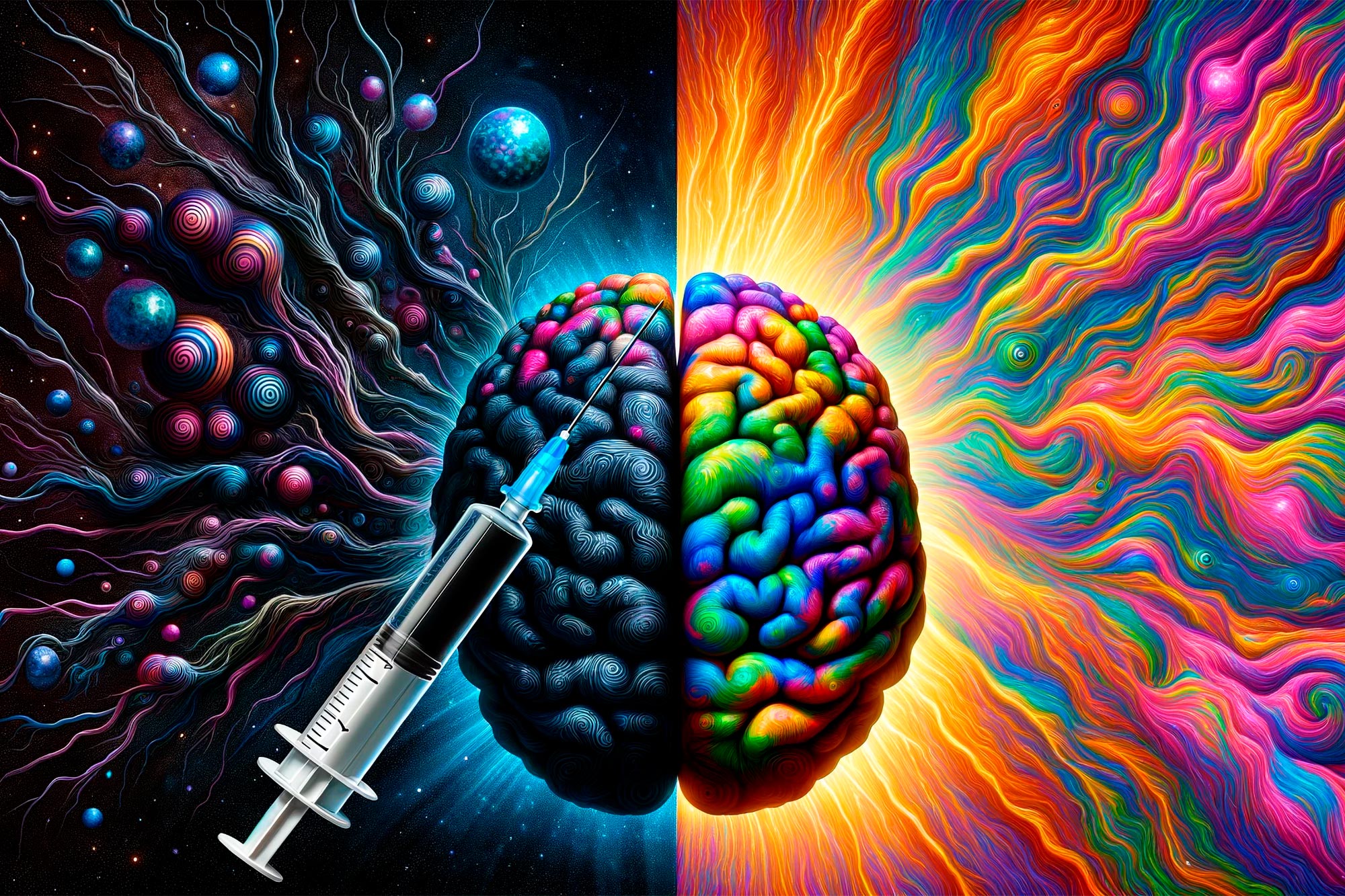By
The drug ketamine shows promise in rapidly reducing PTSD and depression symptoms, according to a recent study published in the Annals of Pharmacotherapy. While traditionally used as an anesthetic and sometimes misused, ketamine’s potential in mental health treatment is being explored.
Recent research indicates that ketamine, traditionally an anesthetic, can quickly reduce PTSD and depression symptoms. This finding is significant given the slow onset of traditional PTSD treatments. However, questions remain about the optimal frequency and dosage of ketamine treatments, and the risks associated with its misuse are notable.
The drug ketamine can reduce the symptoms of post-traumatic stress disorder, or PTSD, and symptoms of depression in patients as early as a day after injection. That is the key finding of my team’s new meta-analysis, just published in the journal Annals of Pharmacotherapy.
Ketamine is an anesthetic that is sometimes used as a substance of abuse but is increasingly being explored as a treatment for a range of mental health conditions.
Study Analysis and Findings
In our study, we analyzed six randomized controlled trials representing 259 patients with moderate to severe PTSD. In all trials, about half were injected with ketamine. The rest received either salt water or the drug midazolam, a benzodiazepine like Xanax that is also used as an anesthetic agent.
Patients receiving ketamine saw their PTSD symptoms reduced by about 25% both at one day and one week after therapy. However, if patients received repeated injections over four weeks, PTSD symptoms declined by only 12%. The reduction of depression symptoms was more modest but still significant.
In most of these trials, patients only received a single shot; in the other two, they were given an injection at the same dose six or more times over two to four weeks. The benefits after the first injection were similar across studies, but it’s unclear how well additional doses of ketamine over time maintain these benefits.
Overall, the benefits of even a single ketamine injection occur rapidly, but are modest in magnitude. The best regimen to maintain these benefits by reinjecting ketamine has not been determined.
The Significance of Ketamine for PTSD
PTSD, a debilitating mental health disorder, occurs when past trauma causes flashbacks, nightmares, depressed mood, anxiety, and avoidance of activities that could trigger traumatic memories. Patients with PTSD are twice as likely to attempt suicide than the general population.
About 13 million Americans have PTSD in a given year, which translates to nearly 5% of the adult population. PTSD is caused by experiencing or witnessing a traumatic event. Many combat veterans have the disorder, as do survivors of physical assault, natural disasters, child abuse, and sexual abuse. Those with moderate to severe disease cases lose an average of about three and a half days of work per month due to triggered symptoms or treatment for the illness.
Current Treatments and Ketamine’s Advantages
Trauma-focused psychotherapy – techniques that help patients recall, process, and respond to traumatic memories – is the treatment of choice for PTSD, but it can take several weeks to see benefits, and not all patients respond.
For these people, antidepressants such as paroxetine, sertraline, and venlafaxine are recommended as alternatives, or as an addition to psychotherapy.
But like psychotherapy, these drugs may not work for a while – about five to eight weeks – unlike ketamine, which seems to begin working almost immediately. That said, the reduction in PTSD and depression symptoms over time following ketamine injection is about the same as what the traditional antidepressants provide once they take effect.
Because some people with severe PTSD may be experiencing suicidal thoughts, time is of the essence; they simply might not be able to wait for traditional options to begin working. Ketamine might be an effective bridge to immediately reduce patients’ symptoms until trauma-focused psychotherapy and other antidepressants can kick in.
Unresolved Questions and Costs
The big unknown with using ketamine for PTSD and depressive symptoms is how often the injections are needed. The data simply is not robust enough to determine whether multiple doses maintain the effects better than simply using a single dose.
Ketamine costs around US$800 per injection, so knowing how much to administer each treatment and how many injections to give over time is important.
Risks of Ketamine Abuse
Importantly, ketamine can be abused. If purchased from unlicensed pharmacies or online stores, the ketamine product is not approved by the Food and Drug Administration. It may not have the correct dose, may have expired, or might not even have any ketamine in it. Or, it may contain a substitute drug with a dangerous active ingredient, like the synthetic street drug LSD. Such fake products can harm or even kill patients.
Written by C. Michael White, Professor of Pharmacy Practice, University of Connecticut.
Adapted from an article originally published in The Conversation.![]()

Sarah Carter is a health and wellness expert residing in the UK. With a background in healthcare, she offers evidence-based advice on fitness, nutrition, and mental well-being, promoting healthier living for readers.








